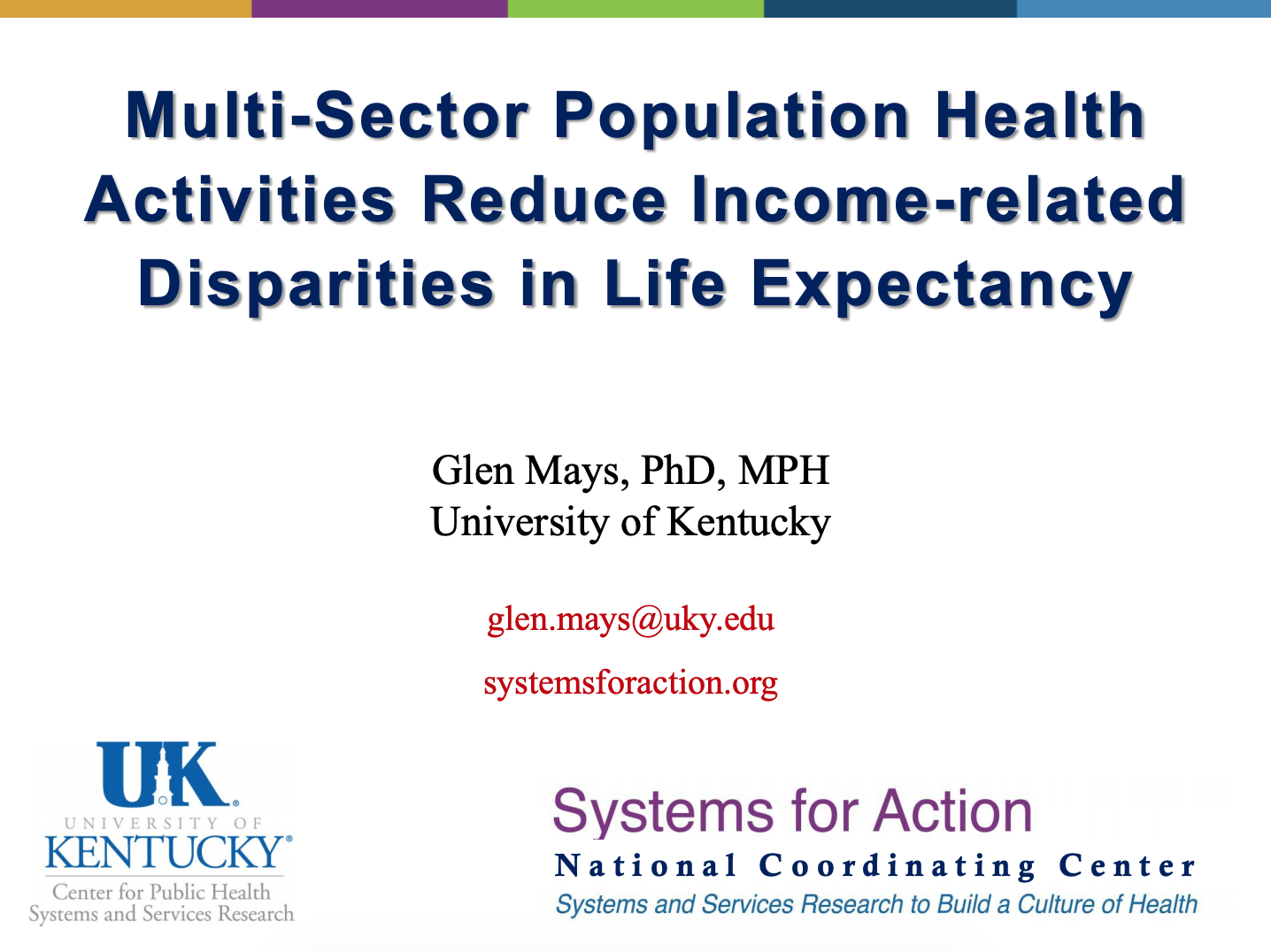
Multi-Sector Population Health Activities Reduce Income-Related Disparities in Life Expectancy
This presentation highlights research linking income and life expectancy data with the 1998-2014 National Longitudinal Survey of Public Health Systems to examine whether the existence and strength of multi-sector population health improvement activities influence income-related disparities in life expectancy over time.
The presentation addresses:
- How strong are the delivery systems that support foundational capabilities for population health?
- How do these delivery systems change over time (e.g, recession, recovery, Affordable Care Act implementation)?
- How do these delivery systems influence health and economic outcomes?
Dr. Glen Mays presents on research findings that community capacity to implement widely-recommended population health activities is one important contributor to geographic variation in the relationship between income and life expectancy. Policies that encourage multi-sector contributions to population health activities, such as hospital community benefit standards and accountable health community models, may reduce socioeconomic and geographic disparities in health status.

 Back to Resources
Back to Resources